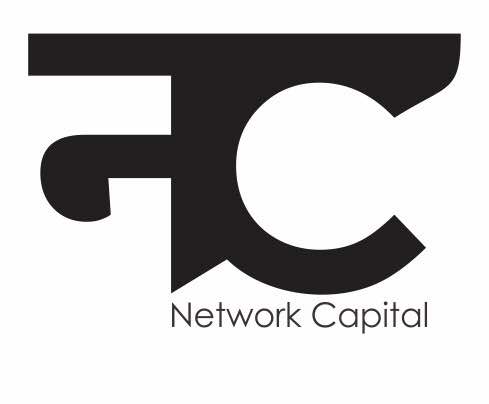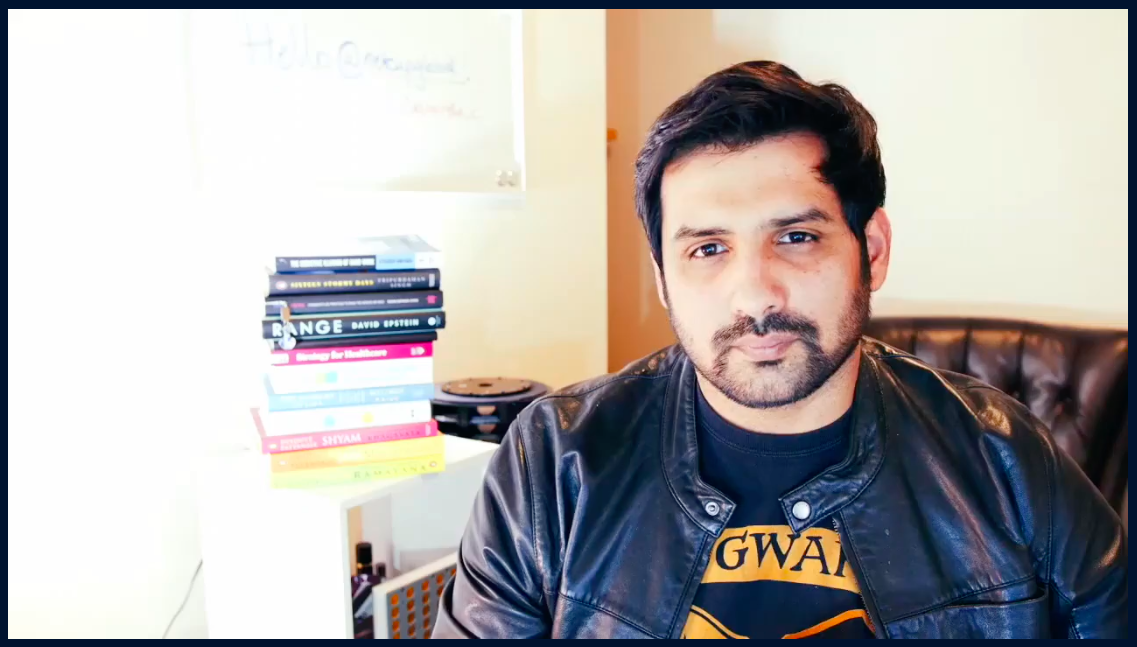Making Network Capital Need-Blind
Subscription Sponsored by NC Patron Siddhartha Chaturvedi
Talent is equally distributed, opportunities are not. Today we are taking another step towards making Network Capital need-blind with the help of our patron and subscriber Siddhartha Chaturvedi, an INSEAD graduate working as the Director of Innovation and Society at Microsoft.
Read his article to learn more about why he is gifting 10 annual subscriptions to those who need mentorship but can’t afford Network Capital. We deeply appreciate the gesture and look forward to doing everything it takes to bridge the talent-opportunity mismatch - step by step, ferociously.
A core component of my INSEAD experience was curated learning by exploring a wide range of subjects along with classmates from 100 countries. Collectively we tried to find patterns and connections at the intersection of business and society. In a world obsessed with independence and specialization, we were trying to explore interdependence and collaboration. Radical collaboration was my biggest learning from INSEAD and I want to play a small but meaningful part in scaling it.
Why? Because it is a critical aspect of innovation and mentorship.
Why? Because it is a critical aspect of innovation and mentorship.
Types of innovations | Why We Should Look at Hybrid Innovations for Designing Our Careers
- Optimization-based innovations: Those that can only be solved by repeated execution. In such cases, the problem statement is often clear, well defined and widely understood.
- Breakthrough-based innovations: Such innovations are spread further apart. They introduce new dimensions to existing ecosystems. For example, electricity, development of micro-controllers, advances in machine learning.
- Hybrid innovations: Such innovations are focused on real world applications of optimization, adaptation, and outcome-driven research. They need to straddle across disciplines and take a more holistic approach.
Work has radically changed but there has been no innovation in how we think about our careers for hundreds of years. Most schools are still built like factories and we are trained to become bored Jacks and dissatisfied Jills. It is time to use the lens of hybrid innovation to design our career strategy. A multi-pronged, multi-disciplinary approach is often required to shape a meaningful career.
Understanding the Difference Between Information and Insight
Today there are many ways to get career information from others – groups at work, social media, meetups, webinars, articles. But information does not equal insight. In fact information overload can be both confusing and paralyzing for young professionals and students.
The biggest question we need to collectively figure out is how to differentiate signal from noise. FOMO is real, but so is our time. That is why the curator economy is the future of learning.
What is the Curator Economy?
The curator economy is a lot like a jigsaw puzzle. It is typically led by a person or a set of people who helps you fit the pieces of the puzzle together. Think of learning and designing your career as a jigsaw puzzle that needs to be figured using the hybrid innovation lens with the help of a curator and a tribe of mentors. This is something that has served me well so far.
An intersection of the curation economy and hybrid innovation is the emergence of hyper-curated heterogenous networks that enable exchange of ideas and create safe spaces for experiments.
One such curated community I have had the pleasure of being a part of is Network Capital, led by Utkarsh, peer from Microsoft and INSEAD, who has now dedicated all his time and energy to bringing different learning ecosystems together. I am a big believer in contra-disciplinary learning and Network Capital enables that for all its members. Its ultimate mission is to enable every person on the planet to build her/his category of one, as he explains in his Harvard Business Review article.
One such curated community I have had the pleasure of being a part of is Network Capital, led by Utkarsh, peer from Microsoft and INSEAD, who has now dedicated all his time and energy to bringing different learning ecosystems together. I am a big believer in contra-disciplinary learning and Network Capital enables that for all its members. Its ultimate mission is to enable every person on the planet to build her/his category of one, as he explains in his Harvard Business Review article.
I have spent a lot of time thinking about formal and informal networks, the value of strong and weak ties, the hyper-experimentation of what we call the ‘bootcamp-effect’ on relationships. Network Capital has distilled these learnings into the learning experiences that deliver concrete results: from fellowships to serendipity dinners, enabling both formal, and informal interactions. They serve as NITI Aayog’s (Government of India) partner for Atal Innovation Mission that provides mentorship to 1.6 million students and have been featured on Harvard Business Review, Harvard Business School, TED and World Economic Forum.
Network Capital has raised funding from Facebook as part of their community accelerator program. As it scales further, I want to make the Network Capital ecosystem accessible to as many people as possible (over a period of time). Everyone needs a tribe of mentors but not everyone gets the opportunity to build one. Network Capital is trying to change that and I want to do my bit.
What Next? Why Now?
I would have loved to have had a global network of impact investors, health-tech professionals, product managers back in 2013 when I was trying to build my startup. Realizing the criticality of mentorship in one’s career, I am sponsoring 10 students/professionals as part of the NC Patrons Fellowship. Everyone selected will get a 1-year subscription to Network Capital, its fellowships and chapters, and also get a 1:1 mentorship session with select guides quarterly. I will personally make myself available for office hours for those interested in doing an MBA, working in big tech, building startups.
To apply, please fill out the intake form here
I look forward to reading your stories. Let’s democratize mentorship together.
PS. If you have any questions, you can write to us here.
PS. If you have any questions, you can write to us here.
Career Intelligence
Resources
Copyright © 2026-2021 Network Capital


